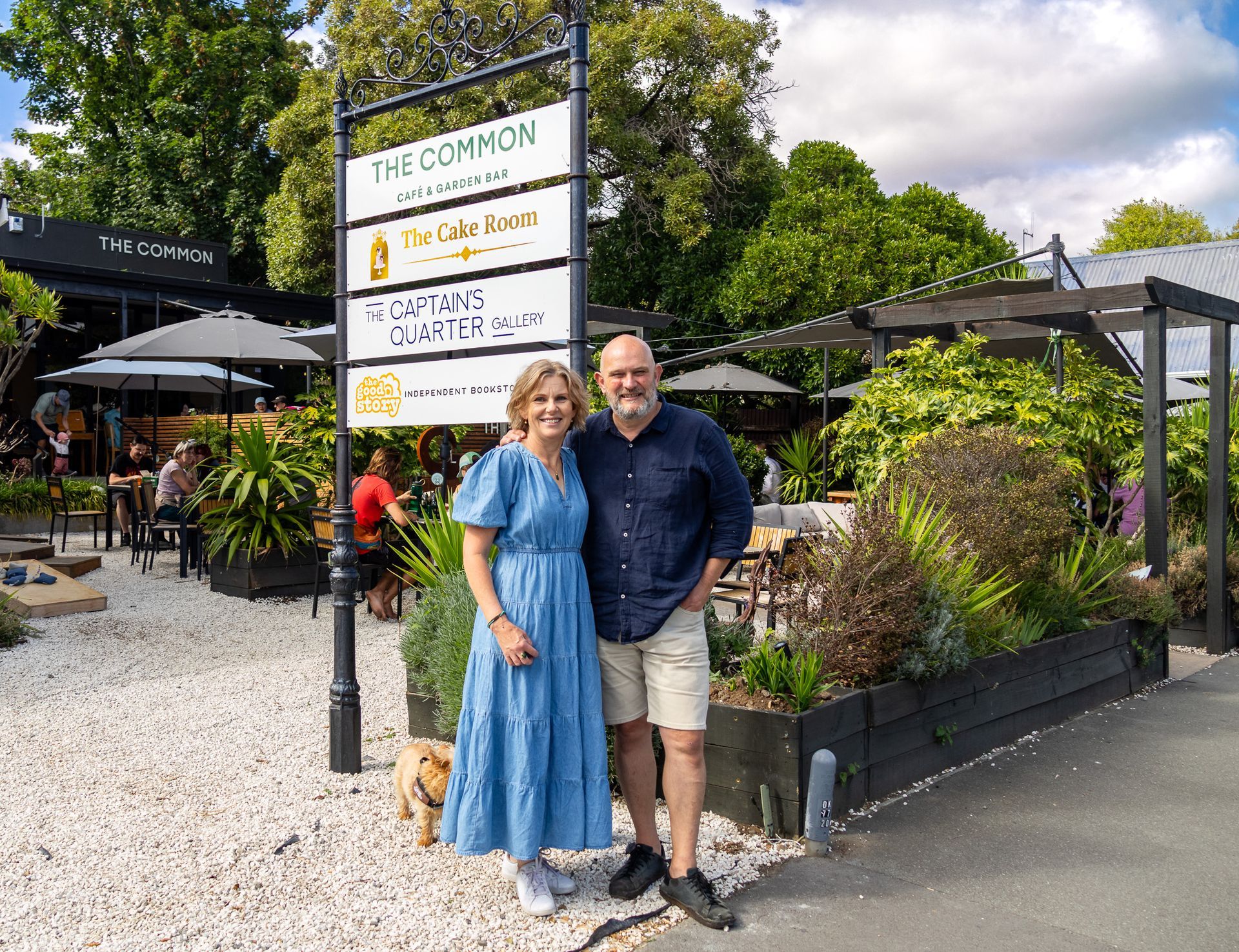Radio Lollipop is an international children’s charity providing play and entertainment for children in hospital. Sue Kingham went along to meet some of the volunteers and discovered they are just what the doctor ordered.
What makes busy people, including teachers, choose to spend their evenings cheering up children in hospital? To find out, I arranged to meet Nicky Horne, the honorary chairperson for Radio Lollipop Christchurch. Nicky was one of the first volunteers when the charity came to Christchurch Hospital six years ago. She meets me at 6 pm beside the mobile radio station parked in a reserved spot at the hospital’s Riverside entrance. The team of volunteers receives supplies of toys and games, then Nicky and I pop into the van to chat about what their volunteering entails.
‘We have around 60 Radio Lollipop volunteers in Christchurch and operate four nights a week – Monday to Thursday,’ Nicky says. ‘Everyone who signs up is expected to attend one 5.30–8 pm session per week. It is a big commitment.
‘Our volunteers’ minimum age is 18, but we have all ages represented. People often come in through word of mouth or because they’ve experienced the service when a sibling or friend was in hospital. Helping sick children has a broad appeal. We run our recruit training sessions in March and September and are in the fortunate position of having plenty of applicants. So far, we’ve never had a problem maintaining the service. Often people who are new to Christchurch volunteer to widen their social networks. It is very sociable. Teams meet up outside of their duty hours and the volunteers enjoy each other’s company.’
The radio service is an integral part of the evening. Music plays through the TV in the children’s rooms while the volunteers interact with patients. Nicky tells me there has been a delay in the opening of the new radio studio, which is being built next to the children’s wards. ‘The CDHB is giving us space to use and Pub Charity is funding our new station. We’re so excited about this new facility. We had hoped to be in by the end of January 2020, but it’s been pushed back. For the past six years, we’ve operated from our converted campervan, and someone has had to drive it to and from the hospital each evening.’
The disc jockeys for this Tuesday session are Timmi Aplin-Barrett and Carla Benton. Timmi announces on air the theme for the art competition, which is Canterbury Show Week. She asks the children to draw their favourite farm animal and says, ‘Hand your drawings to the Radio Lollipop volunteers, they’ll bring them out to us.’
As Nicky and I head up to the wards, she explains that Ward 21 is surgical and is a mixture of single bedrooms and some multiple occupancy rooms. Ward 22 is a medical ward with a high dependency unit. Volunteers also visit the oncology ward, and twice a week they go to Ronald McDonald House.
Entering Ward 21, we pass a couple of teenagers in single rooms. Nicky waves at them and tells me, ‘Sometimes the teenagers get involved in the games. Most kids put their technology away when we come in. They see our baskets full of goodies and, after a long day in a hospital bed, they crave human contact.’
I watch as the volunteers circulate the wards in pairs. Most of the children have parents with them, and the volunteers get verbal consent before interacting with their children.
‘Some children are admitted via the acute ward for assessment,’ Nicky says. ‘Their parents don’t have anything with them because they weren’t expecting to stay. It’s good to be able to offer the child a book or toy, and we also give their siblings something.
‘If people would like to donate, we can only use new items, such as games which take 10 or 15 minutes to play. Unfortunately, we can’t accept soft toys. Financial donations can be made via our website. Other than money, large bubble wands are always required; we use them every single night. Bubbles have a powerful effect on kids. A child may be lying in a hospital bed, really sick, but when we blow a few bubbles, the parents tell us it’s the first time they have seen their child smiling all day.’
Nicky and I stop by the Radio Lollipop play table to chat with the volunteers who are laying out craft materials. Reani Ferrer, 23 years old, has been volunteering for a year. She heard about Radio Lollipop via the Volunteering Canterbury website, and decided to get involved because she loves playing with children. ‘It’s so cool when you go in and they aren’t doing well, and after playing for five or 10 minutes you can tell you’ve made their day,’ she says. ‘Some kids are so cheeky, they’re lots of fun. It’s inspiring to see how strong these children are. They all leave a mark on my heart.’
Twenty-six-year-old Charlotte Fowler is Reani’s volunteering buddy. She also became involved via Volunteering Canterbury, and although she has only been involved for four months, it is plain to see she enjoys it. ‘It’s quite amazing how playing a game and having a chat with a sick child can make a difference,’ she says. ‘We make powerful connections. We may see some only once, but others we get to build relationships with, especially those who are in for a few weeks or who have cancer.’
As we are talking, Maria Johnstone walks by with her daughter. Luci has a surgical tube in her arm but is well enough to engage with Charlotte and Reani. They leap into action and pull out a Disney colouring sheet and some felts. Reani chats about her favourite Moana movie character. Luci relaxes and Reani fetches a bag containing a pink plastic tea party set. Together they lay it out on the table. I’m impressed by the way these young volunteers relate so well to this youngster.
The distraction offered by Radio Lollipop is a godsend to tired parents who have spent hours with their child in hospital. I followed up my ward visit by chatting with Elissa Bittenden, whose two-year-old son Arlo was hospitalised due to his asthma.
‘I was very anxious,’ Elissa tells me. ‘I never imagined he’d be in and out of hospital for three weeks. In total, Arlo spent 16 nights away from home. By the end of each day, I was ready for a break. It’s so difficult to entertain a child all day in a hospital room. We both had poor sleep during that time, so we were exhausted.’
Like many people who rarely visit a hospital, Elissa was unaware of the role Radio Lollipop volunteers play in hospitals around the country. ‘I’d never even heard of Radio Lollipop. The volunteers were wonderful. Arlo enjoyed the large bubble wands and playing the games. He was much happier after their visits. On nights he didn’t want to play, they just dropped off toys. The young volunteers brought in their energy, which was amazing. Having others around to entertain him allowed me to be less of his focus. I’m so grateful for the service, it made a huge difference.’
Radio Lollipop was established to cheer sick children in hospital, but it’s clear to me that the energy from the volunteers also helps the parents and hospital staff. Experience around the world has shown that happy children respond faster to treatment. The Radio Lollipop volunteers do it because they have big hearts and their prescription of fun, games and crafts is clearly a winner.
Recent stories

All Rights Reserved | CountryWide Media






